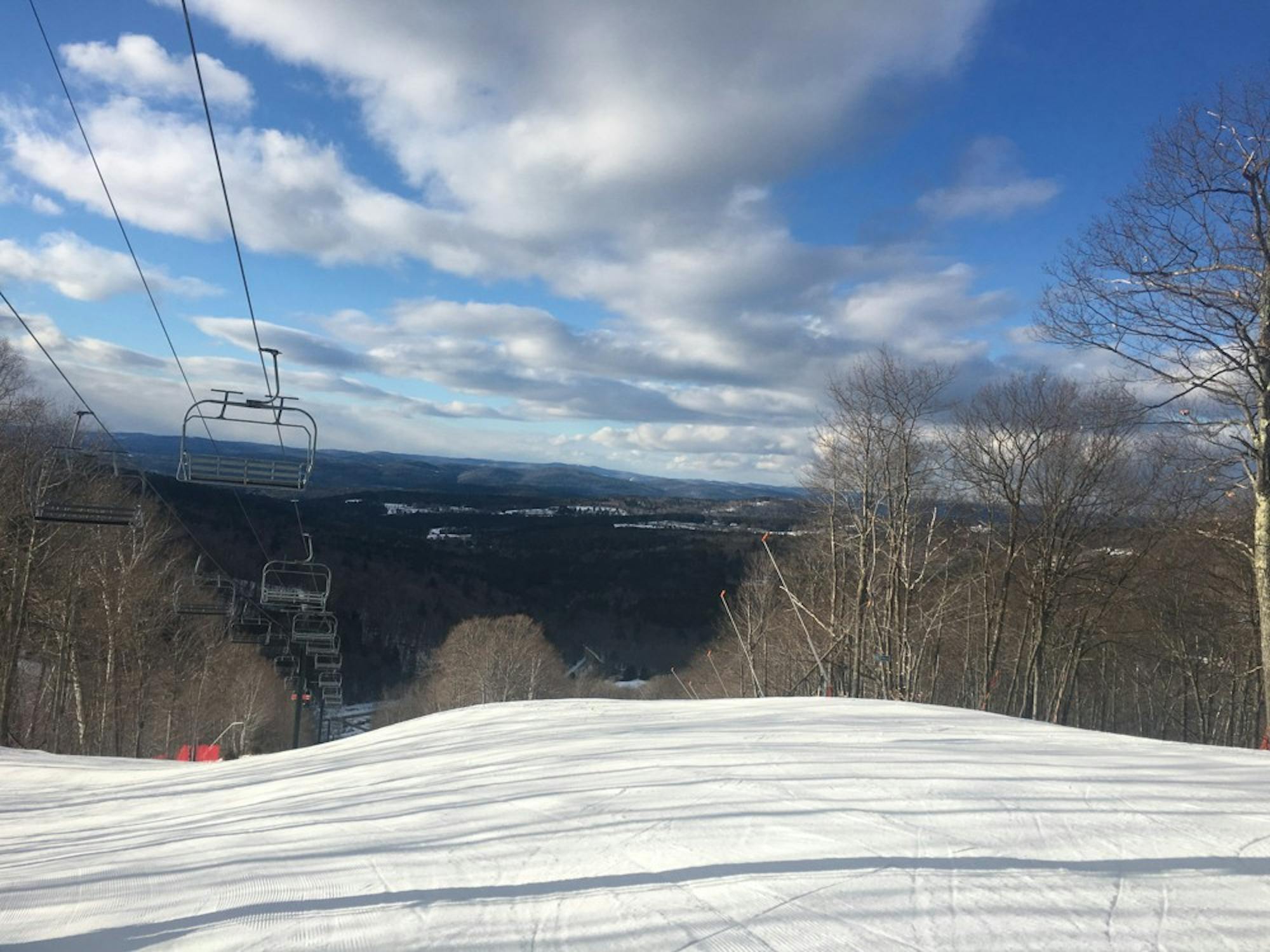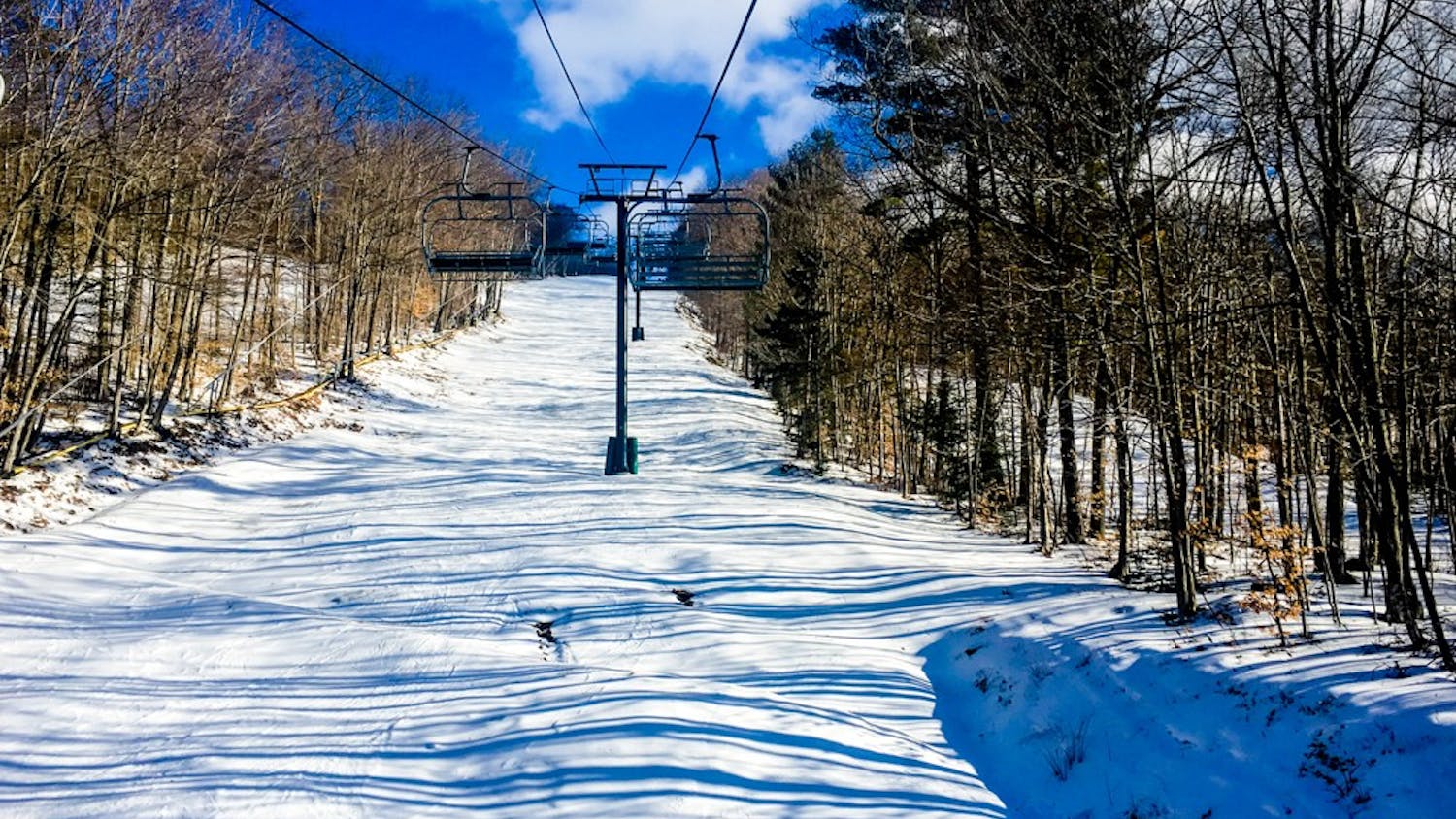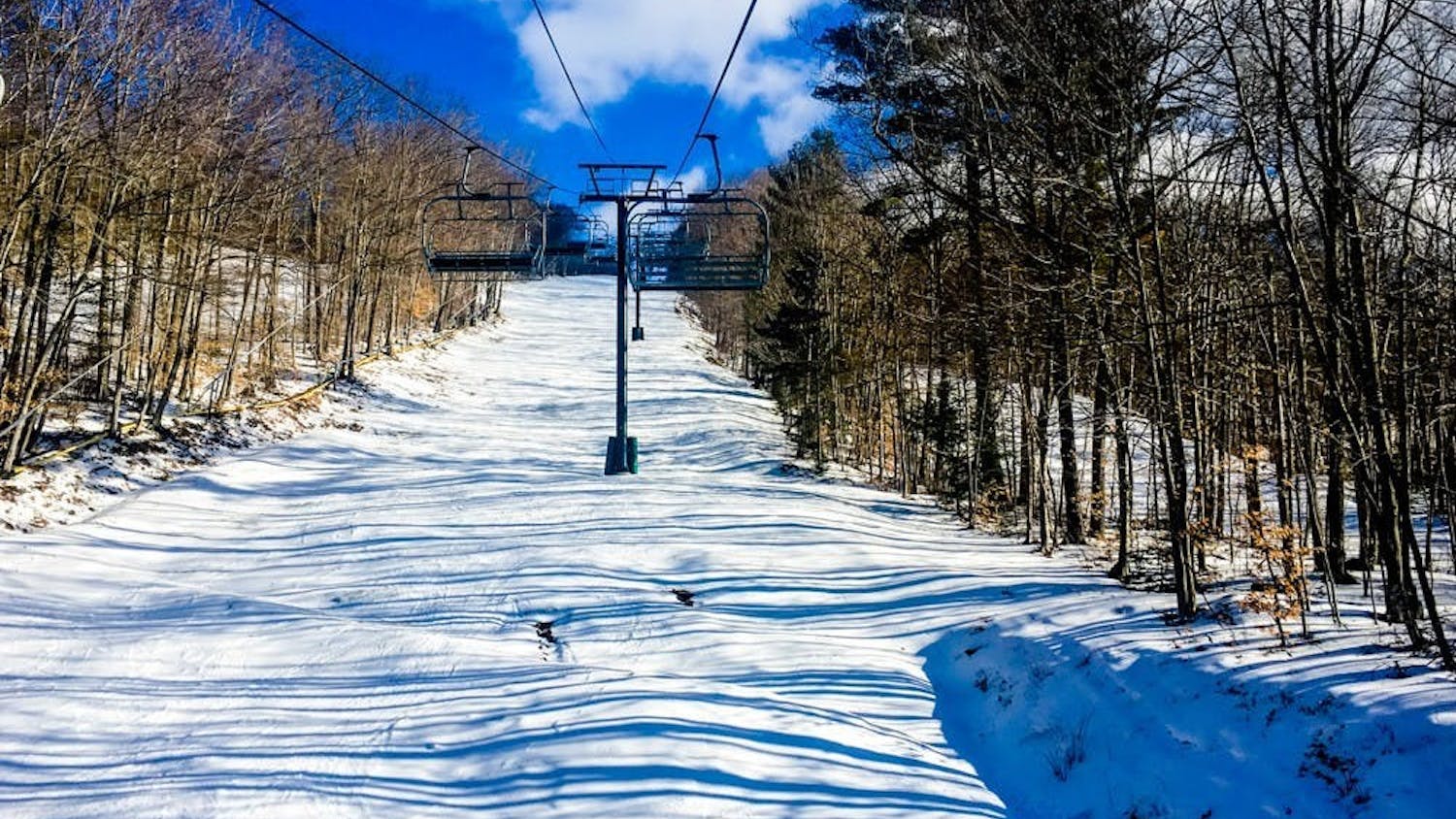Since reopening for business on Dec. 28, the Dartmouth Skiway has been busy, as students and locals jump at the opportunity to get outside. Even as the Skiway copes with staffing shortages and COVID-19 protocols, management reports that operations are going smoothly.
Despite COVID-19-related capacity limits, Skiway general manager Mark Adamczyk said that many students and community members are enjoying the slopes this season. Season pass sales are up 15% this winter, and the Skiway stopped selling season passes on Dec. 31 after it maxed out in sales.
Capacity limits have impacted both indoors and outdoor operations — on peak days, when season pass holders are most likely to frequent the mountain, the Skiway constricts day ticket sales by as much as 50%. Additionally, only small numbers of patrons can go indoors to access the bathrooms or rent equipment. In line with COVID-19 regulations, patrons must get dressed in their cars and leave their belongings there.
Skiers and snowboarders can also only ride the lift with those in their party. Thirty Trails Cafe at the Skiway allows customers to order food through a window at the back of the ski lodge or scan a barcode on the chair lift to place orders and pick up food from the window once they have skied down.
Although the reduced capacity limits have impacted lodge access, many agreed that the restrictions have not impeded their experiences too heavily.
Luca Caviezel ’24 noted he did not feel the lodge was crucial to his visit. Luc Cote ’23, however, found the lack of access “a little tough” — since there was no “indoor place to get your ski pants on” — but he added that “it hasn’t been a big deal because the parking is so close.”
According to Dartmouth Ski Patrol student director Charlotte Driscoll ’21, at the beginning of the season, officials from the College Health Service visited the facility to assign capacity limits to spaces and help the Skiway implement health protocols. Adamcyzk said that mostly, patrons just need to remember to “stay outside, wear a face covering and keep [their] distance.”
Caviezel noted that face masks were not an additional hurdle for him while skiing.
“You’re wearing a mask anyways because you’re skiing, and it’s cold so it wasn’t an unusual skiing experience,” he said.
For those waiting to use the lift, Adamczyk noted that the Skiway has implemented “ghost lanes” — empty spaces within the chairlift queue — to separate skiers waiting to board. He said that ski equipment “does a lot of the heavy lifting for social distancing as well,” adding that “[when] you have big, long skis on your feet, you tend to not get too close.”
Adamczyk also attributed much of the Skiway’s success this year to their redesigned uphill ski policy, which allows skiers to hike or snowshoe to the top of the mountain and ski down, thus alleviating pressure from the lift lines. The Skiway has sold 150 uphill season passes this year, up from 23 last year. Adamczyk said the option has been especially popular among Upper Valley community members.
Despite overall success in hill operations, there have also been a number of challenges, such as management of COVID-19 rules.
“You have to manage all of these protocols every single day. Only so many people in this area, only so many people in that area. It's not hard work, but it's a lot of it,” Adamczyk said, jokingly adding that “it's kind of death by a thousand paper cuts.”
Another challenge has been fewer Ski Patrol members due to College rules. This year, there are just 24 members of the Ski Patrol staff, rather than the usual 60. Driscoll clarified in an email that Ski Patrol was informed in December that student members without on-campus approval would not be able to work on the mountain. At that point, it was too late for many undergraduate ski patrollers to secure on-campus approval for winter term, she wrote.
“Now that both sides of the mountain are open, we will be operating with comparatively low staffing, roughly half of our normal levels,” Driscoll said, noting that Ski Patrol members have been working extra shifts to compensate.
She added that there had already been a few “relatively significant incidents” that were handled successfully, but with “fewer people than would normally be ideal.”
Driscoll also said that in order to keep patrollers safe, members “do as much of [their] examination as [they] can from a distance and really only touch the patient if absolutely necessary,” which has made the patrol’s job more difficult.
The Skiway has also had trouble finding staff to work the facility’s chairlift, snow making and snow grooming operations, according to Adamczyk. They have therefore been looking to hire student lift operators in an effort to operate the Holt’s lift more frequently.
Sarah Palmer contributed reporting.



